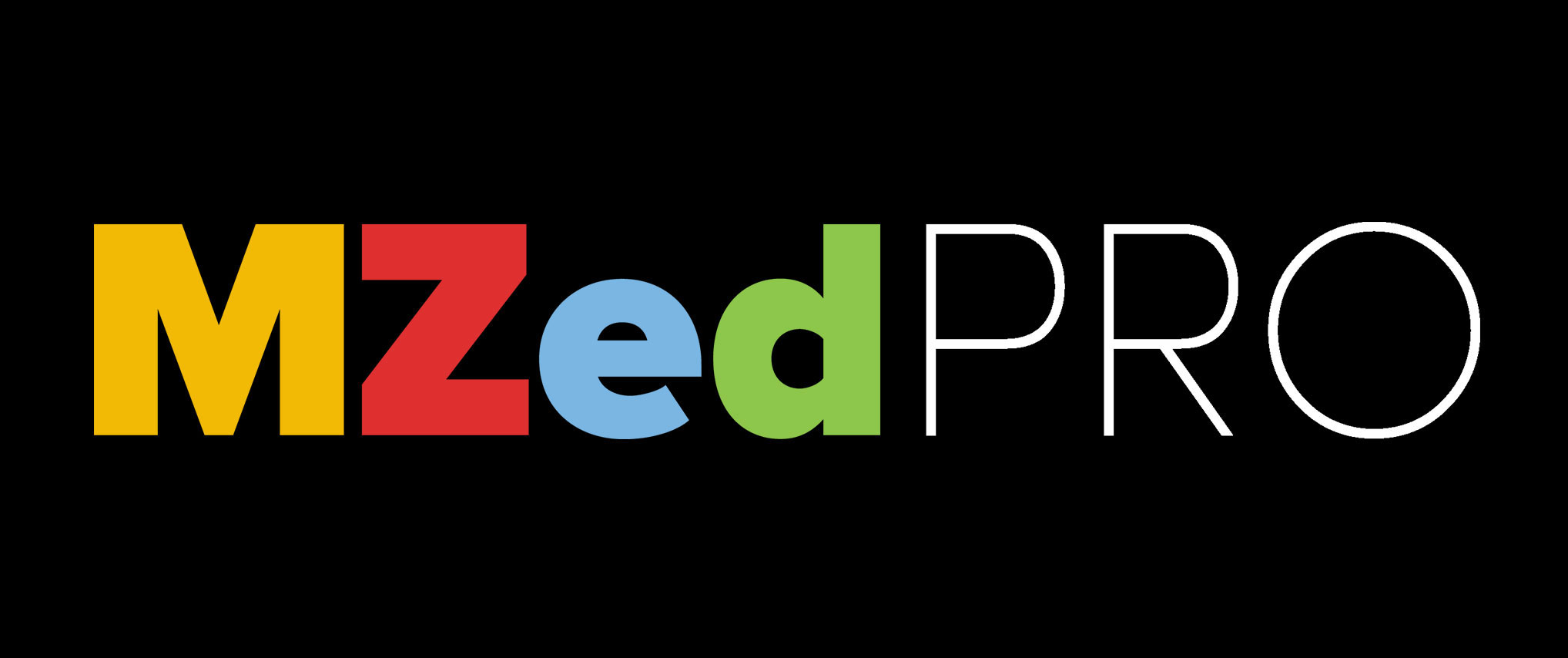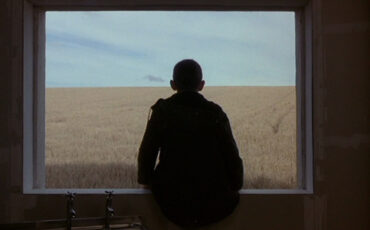
“Networking”. For some of you, this word alone will evoke unpleasant sensations. I totally get it. We’re filmmakers and want to make films, not small talk. However, creating movies, music videos, and other kinds of visual stories is a collaborative process. You need people. Preferably, people you like. Even better – the ones who know their game. And yet, it can be very difficult at times to find your swarm. But don’t worry! Here we have gathered some networking tips for filmmakers and video creators that you can try out.
It doesn’t matter whether you’re a new-born filmmaker, or have a long IMDB record. One day, you might have to move to a tiny Austrian town (hey there!), change your specification from ad producer to documentary shooter, or get a million subscribers on your YouTube channel overnight and start seeking collaborations. Life is an unpredictable beast. Yet, if you know how to grow your network from scratch, reach out to experts, and expand your connections (on- and offline), you won’t ever get lost. That’s what we’re going to talk about further below.
First steps in networking as filmmakers
The concept of an “elevator pitch“ can seem annoying. At the same time, if you want to network (regardless of whether digitally or in person), you will surely need a quick summary of yourself and/or your current projects. The best-case scenario is to make a short, memorable, self-introduction that also opens a door to further discussion. How?
Think of yourself as a brand (sounds cheesy, I know, but it helps). What could be your creative mission? If you don’t have any films in the making, answer generally. What is it you want to talk about in your work? Which values and messages are important to you? What sparks your interest? How can you help your potential clients and collaborators – to achieve what? Write it down and read it aloud. Make sure your speech lasts between 30 and 60 seconds (or 50 to 200 words).
Starting a Youtube Channel
In her MZed course “How to Start a Podcast”, marketing strategist Latasha James also suggests creating “a listener profile”. Speaking broadly, you need to establish your “audience”. Who would be interested in working with you? For whom can your expertise (or films, YouTube channel, podcast – pick your own variant here) be especially valuable? Imagine these people and write down a few biographical details about them. They will be your first contacts. (More tips on defining your audience and topics here).
Going to open events
Okay, now you have a brief introduction of yourself and maybe even something to show (portfolio, showreel, pitch deck). Next step: attending events (since I know only limited alternatives for meeting people in person without venturing out of an introverted comfort zone). There are a lot of them: panels, discussions, Roger Deakins coming to the nearby filmmaking university… something happens all the time and everywhere, so make a habit of monitoring interesting events in your area. I suggest subscribing to newsletters of all film-related organizations, clubs, and unions in your city and any ones that are close by. This way, you won’t miss the next golden opportunity to network.
For instance, in Austria, we have an annual government-supported conference CIMIx (“Creative Industries meets Industry”) for audio-visual professionals where they hold so-called speed-dating business meetings. It works like this: Before the event, you can read about other participants and send a meeting request to those you find interesting. If they accept, the platform automatically establishes a 20-minute time slot and even assigns a table number. It’s so easy, and no small talk required! For sure, you can find something similar in your area.
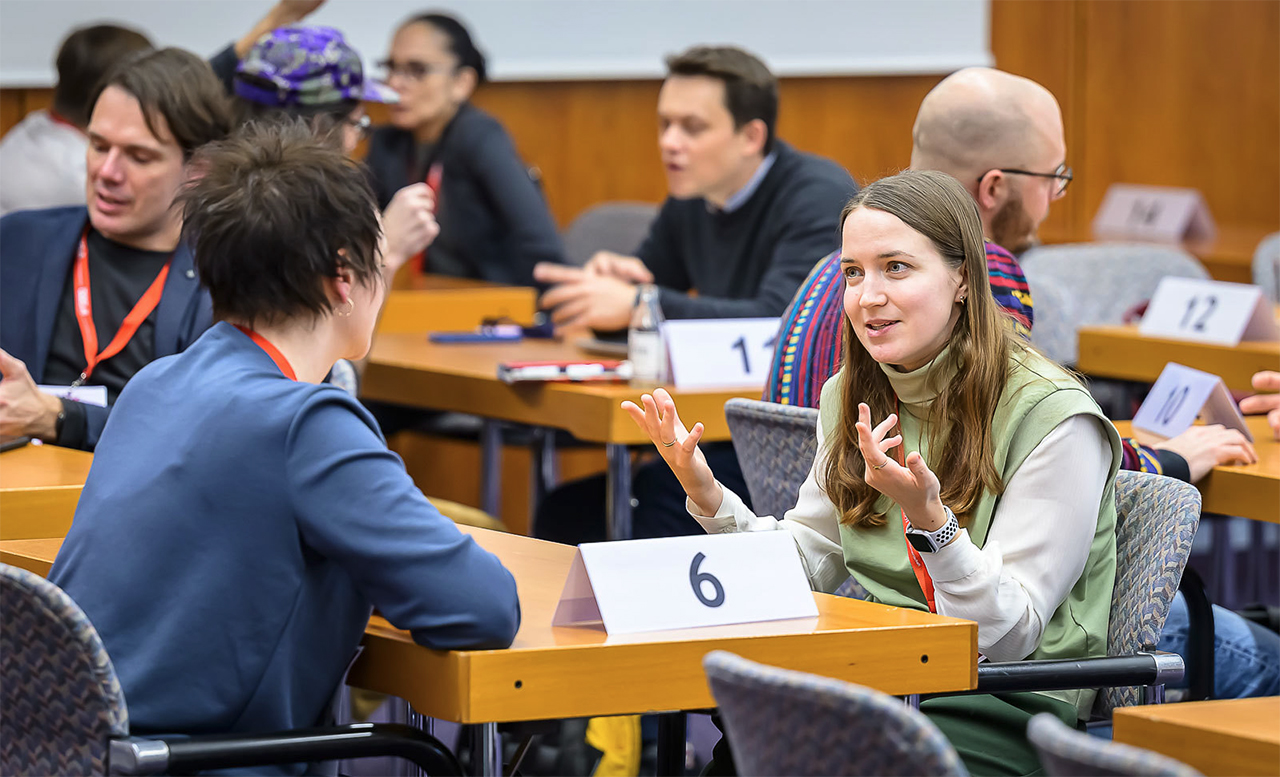
Networking tips on approaching experts
Just going to events is one thing. Getting to know people there who can become your collaborators is the next level. For personal practice, I borrowed a bunch of useful networking tips from a famous American entrepreneur and podcaster Tim Ferriss (in particular, from the following interview).
My takeaways, which you can also try out:
- After a round table or discussion, people from the audience will most likely crowd the panelists. So, what you can do instead is go talk to the moderator, who is usually also an expert on the topic, or at least an industry insider.
- Be genuine and express interest in the topics discussed. Also, mention, what you are here for or the project you are working on. Don’t be afraid to say, “Sorry, I’m new to this party. Do you know anyone at this event who shares my interests and who I should get to know and invite for a coffee?”
- More often than not, they will happily give you a name, or even introduce you to another expert in your area of interest. Go on and chat with them. If it works out and you both are happy to help each other, in the end, politely ask this person the same question – who else do they think you should meet here? Repeat from start.
The key is not to collect business cards as if you’re attempting to build the tallest tower at home. Focus on 4-5 meaningful connections, which can lead to collaborations in the future. Also, don’t forget to follow up with these people! Write them a short thank-you email the next day, reminding them of who you are and what you talked about. Send them a few data points about your experience, your showreel, or a pitch, if they showed interest. Maybe even suggest a new meet-up, if it’s appropriate. Doesn’t matter what you write, just don’t vanish off the face of the earth, or else your freshly established connection will as well.
Online and offline filmmaking communities
Apart from visiting big events, it could be helpful to find local filmmaking communities. Online, it’s not that difficult anymore. My go-to social network for this purpose is Reddit. (Yes, it’s still alive and thriving). There, you can join channels with like-minded creators, and even subscribe to subreddits to help you connect with filmmakers in your area (like this one, for example).
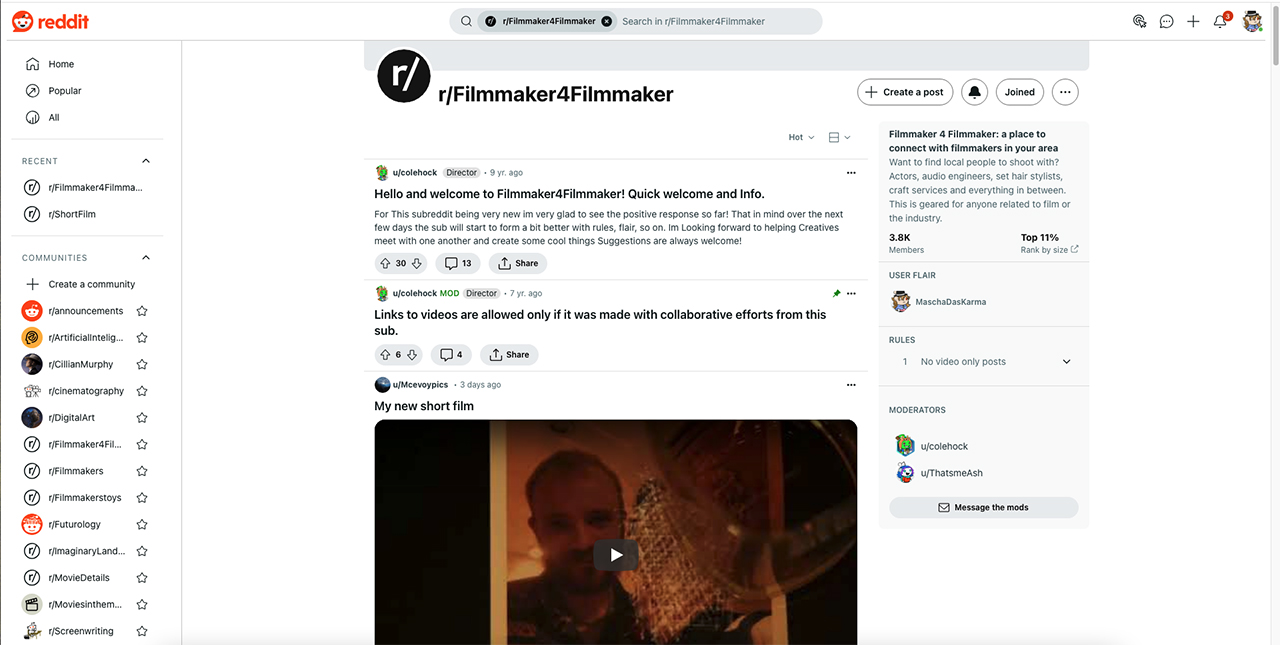
Of course, you can also meet your online swarm in our comments or on other CineD social media channels. That’s how participating in our discussions can be beneficial for growing your network. Give it a try (and don’t be afraid to DM people who seem to share your interests).
Another app I use for finding offline communities and thematical gatherings is Meetup. It’s accessible around the globe and is free of charge. There, you can set up your interests and let the app show you suitable events nearby. The volume of activity differs from location to location. For example, I live in a small Austrian town, and Meetup won’t show me any filmmaking events close enough. Yet, another great app feature is that you can organize and publish meetups yourself. So, if you don’t find anything suitable, go for it, and start your own community! Why not?
Tips for reaching out to possible collaborators as a YouTuber
Let’s say you are already a content creator or video producer with enough experience and work to share. Currently, you’re looking for collaborators, whether to support your vision or work on something together. In the MZed-course “Starting a YouTube Channel”, filmmaker and vlogger Kitty Peters offers a few techniques on how to partner with other YouTubers. (In my opinion, these tips are universal and you can apply them to any art of collaboration you seek):
- Find those who work in your specialized industry (VFX, drone operators, fashion cinematographers?). This will help you reach out to your target audience by working with people who have connected with them already.
- Kitty suggests contacting potential collaborators via social media, like Instagram or X (Twitter).
- What can also help to connect is developing a friendship or acquaintance with a particular person first. Meaning: engage with their content regularly, tell them how much you appreciate their work, and ask questions. That way when you write them it won’t feel like you just need something. Or worse: that you copied and pasted a collab request.
- Have your collaboration idea developed before you contact anyone. Pitching is your job in this case. So, give your potential collaborators all the details they might need. According to Kitty Petters, it might even help to have a Google doc with hard facts prepared – then you can avoid an unnecessary Q&A session.
- Don’t forget to offer something in return for a collaboration. A good tone is to ask them directly how you can help. Some ideas: record a video for their channel, participate in their podcast, or shout out to them on social media.
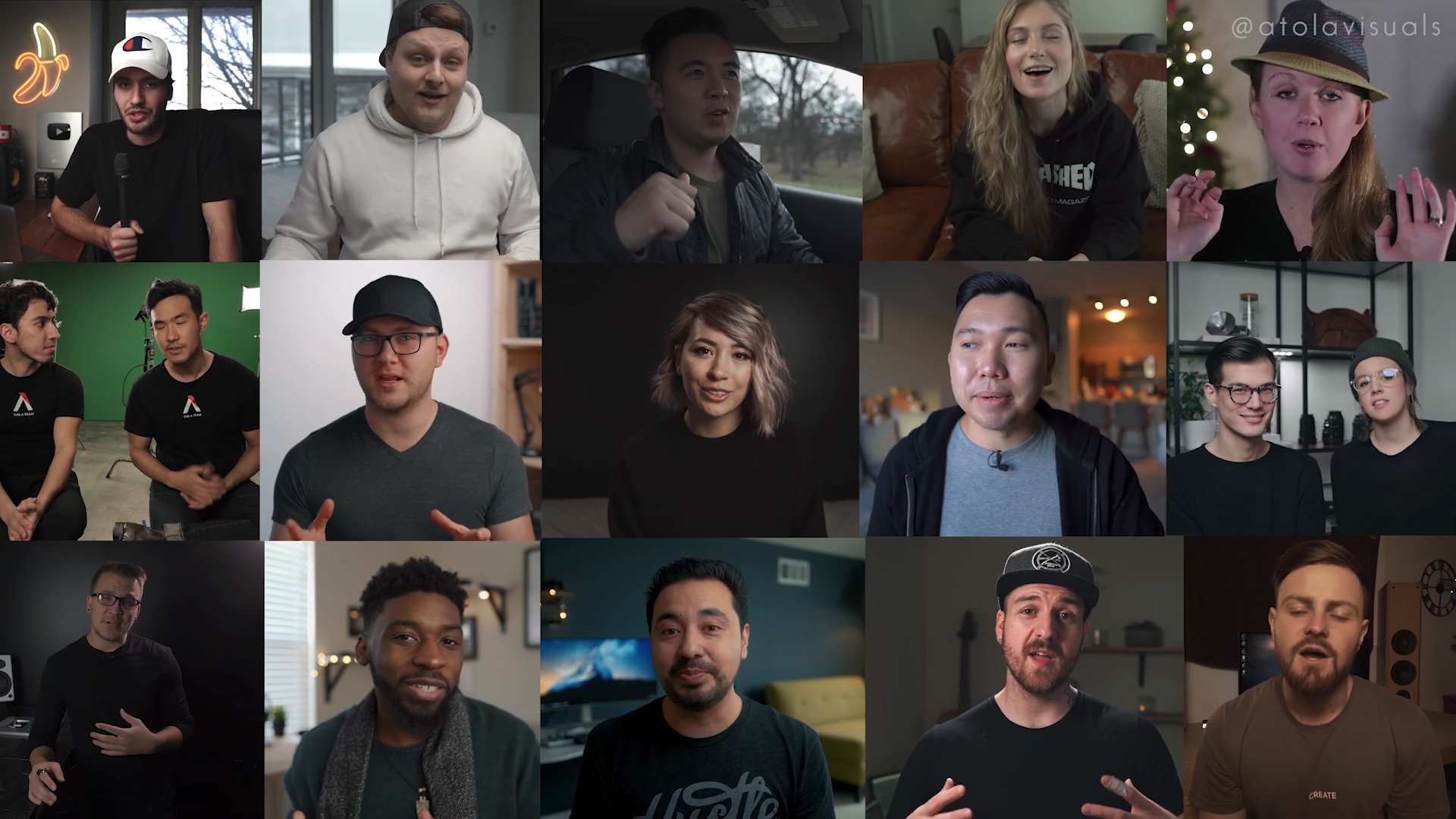
Networking tips for filmmakers – film festivals and trade shows
Two other great places in terms of networking for filmmakers are, of course, film festivals and gear trade shows. If you don’t know where to start looking for collaborators and like-minded people, start there. That’s a sure tip for all media creators.
In fact, why wait? The famous NAB 2024 show in Las Vegas takes place April 14-17. This means that starting this Sunday, you can visit one of the biggest events for the entire broadcast, media, and entertainment industry. We’ll also be there at our CineD/MZed booth (#C5049). If you plan on attending the show, please come say “Hi!” and let’s network: We’d be really glad to meet you! Also, we will have a raffle every day with valuable prizes – more information here.
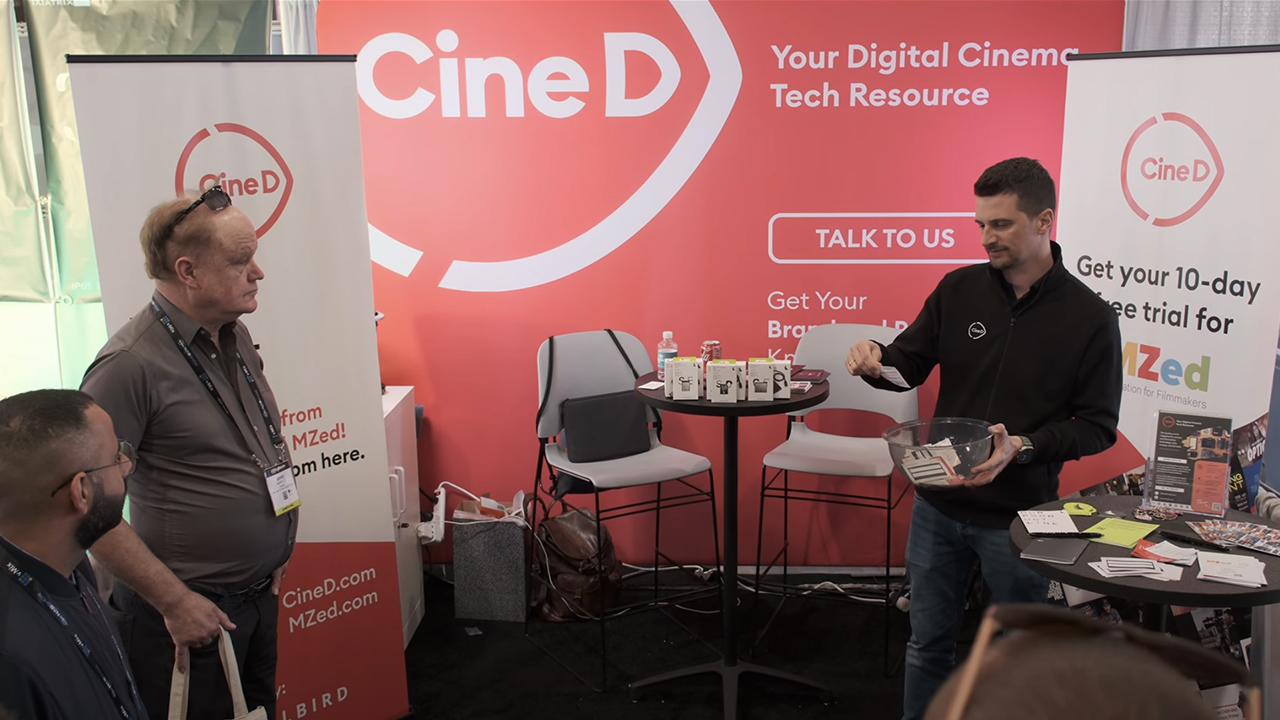
So what is your approach to growing a network? Any other networking tips for filmmakers that you use personally? Let’s exchange experiences in the comments below! Also, don’t be shy to introduce yourself below this post – maybe someone from our friendly filmmaking community is looking for someone exactly like you!
Full disclosure: MZed is owned by CineD
Feature image source: CineD.



